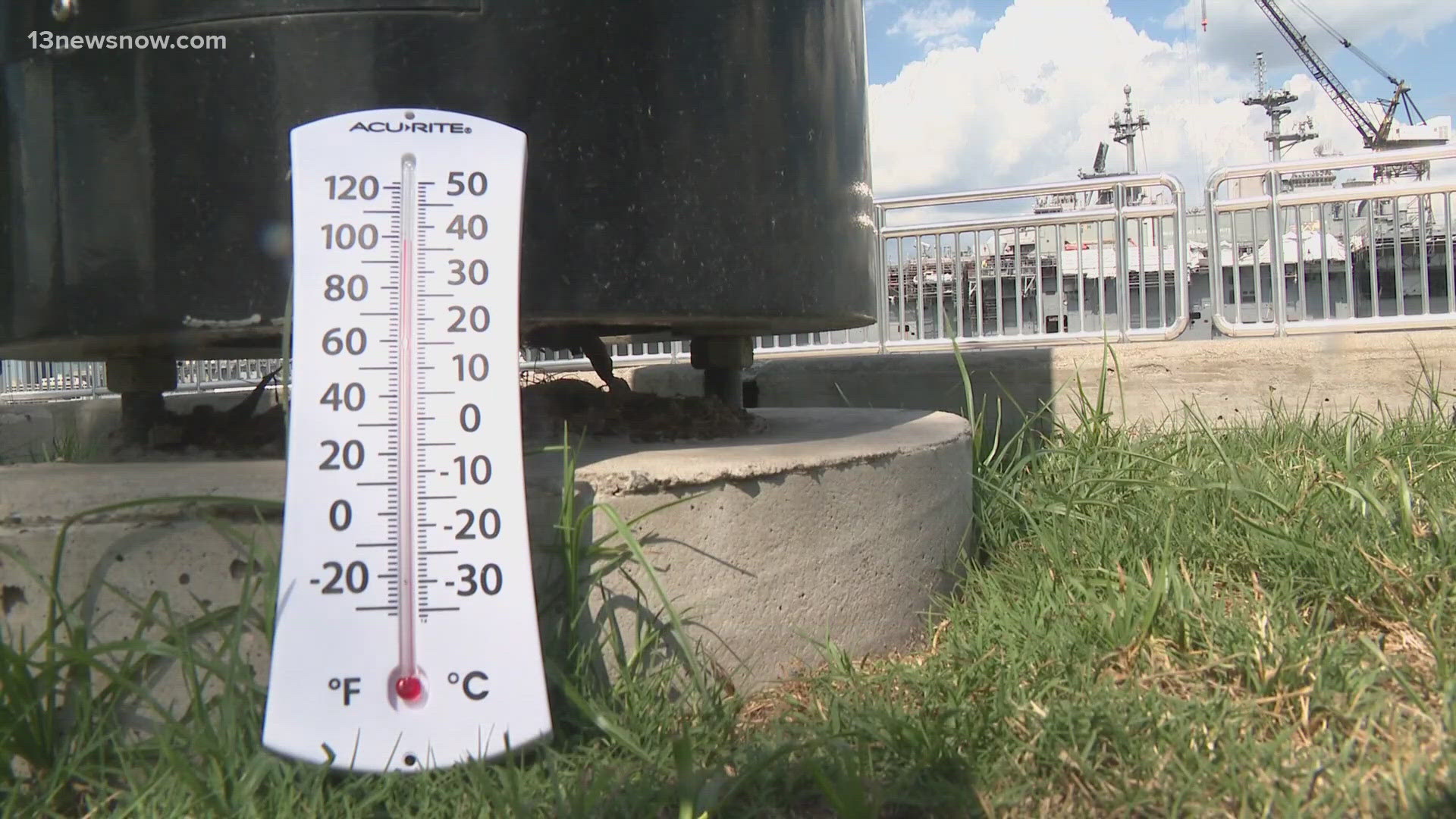NORFOLK, Va. — Old Dominion University Professor of Ocean and Earth Dr. Hans-Peter Plag said the climate has changed and we have to adapt to the new normal.
"We are talking about climate change as something that'll happen in the future," he said.
Dr. Plag said the earth's energy imbalance between the solar energy the planet receives and the heat energy the planet returns back into space "is increasing rapidly, which means the heating is increasing rapidly."
According to the National Oceanic and Atmospheric Administration, the Earth’s temperature has risen by roughly 2 degrees Fahrenheit since 1850. They report 2023 as the warmest year since global records started.
The average rate of temperature change for the Tidewater region is an increase of 1.5 degrees Fahrenheit per century, with data dating back to 1901
“There’s no doubt that we are heating or the planet is heating itself," he said. "This is because we have been causing a lot of changes in the chemistry of the atmosphere.”
He added those changes impact other weather events too.
“We see flooding everywhere," he said. "We see a different behavior of the tornadoes. We see different droughts. We see different heat waves.”
He said things will also become more intense.
"We will see far more intense flooding, far more extreme storms," he said. "Storms that develop really, really fast like [Hurricane] Beryl in the Caribbean."
RELATED: Hurricane Beryl roars by Jamaica after killing at least 7 people in the southeast Caribbean
He said he's concerned we're not ready for extreme weather.
"It's not prepared for the drought," he said. "It's not prepared for the higher humidity. It's not prepared for the heat waves. So, we will lose increasingly critical infrastructure in these events."
He said this will also impact food insecurity. Dr. Plag said now is the time to prepare.
“Where are areas that need heat shelters?” he said. “The other thing is flooding. The stormwater system in most of our cities is not prepared for that.”
He said although the climate has changed, it is still changing as carbon emissions continue to increase.
"In 2023, carbon emission increased by 1.3%," he said.

